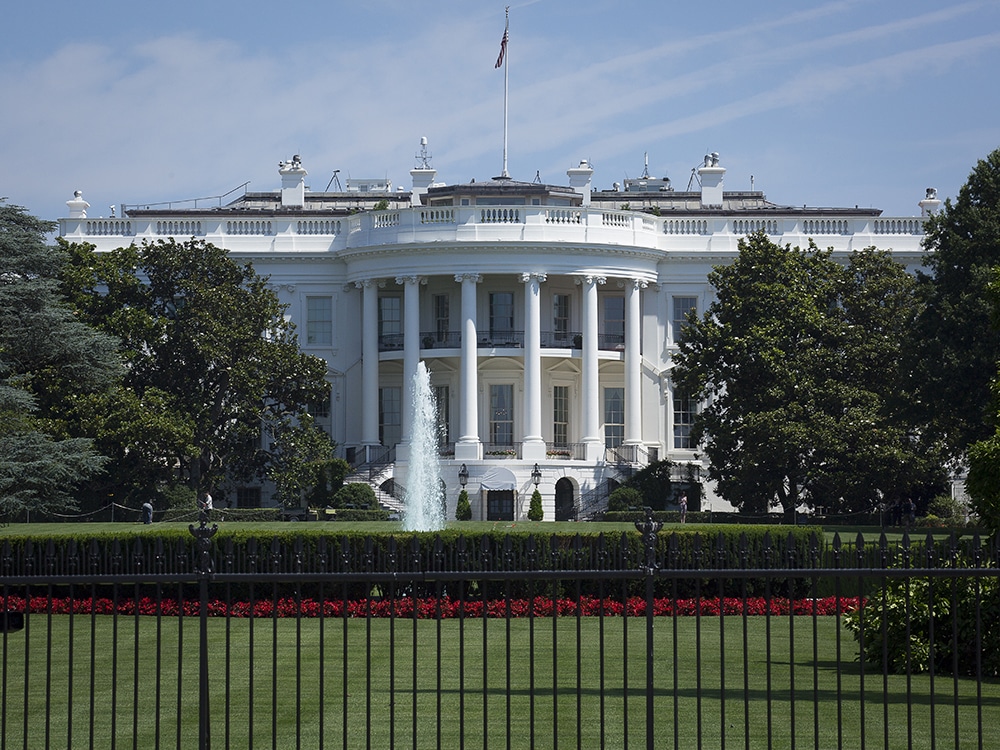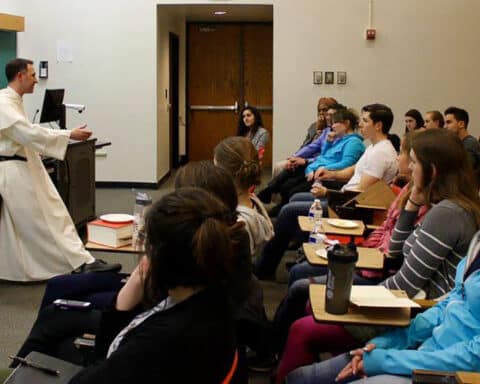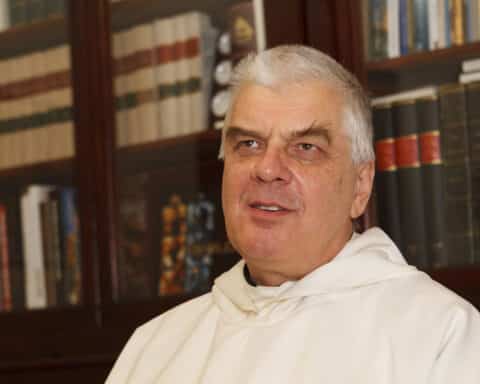
Not so long ago, many Catholics routinely turned to the writings of St. Thomas for answers to difficult questions. Although that time has largely passed, there’s still a lot to be said for seeking the benefit of his clear thinking and good practical sense on current issues.
Both things — clear thinking and practical sense — are required as the nation approaches the traumatic experience of an attempt to impeach Trump for “high crimes and misdemeanors” supposedly committed in pressing the president of Ukraine to dig up embarrassing information on former Vice President Joe Biden and his son Hunter. Biden is the current front-runner in the Democratic party contest to choose Trump’s opponent in the 2020 presidential election.
Up to now, two presidents have been impeached by the House of Representatives — Andrew Johnson in 1868 and Bill Clinton in 1998. Both were later acquitted by the Senate. An impeachment process was begun against Richard Nixon but was not completed because he resigned as president in 1974 before the House could vote.
In light of prudence
Predicting what will happen in President Donald Trump’s case is risky. One plausible scenario is that the Democratic-controlled House will vote for impeachment while the Republican-controlled Senate votes for acquittal, but there’s no certainty about that. Not even Thomas Aquinas is an infallible guide here, but he does say things relevant to the process.
Thomas lived in a time and place very different from ours. There were no elected presidents and elected legislatures then. Instead there were hereditary kings whose authority was thought to come from God, and local rulers linked by bonds of fealty to the kings. “Tyrants” were strongmen who might have come to power by irregular means, including force, and now used their power to serve their own interests.
(Bear in mind that the word “tyrant” in what follows implies no judgment on Trump but is used here simply because Aquinas uses it.)
Although St. Thomas held that monarchy is the best form of government, he recognized that even a monarchy can degenerate into tyranny. Even so, his belief in the divine source of kings’ authority made it difficult for him to consider the removal of a king from office. Instead he writes that it is up to a king to recognize that he “has been appointed to exercise judgment over the kingdom in God’s place.”
The situation is different with tyrants and tyranny. On this matter Thomas holds that tyrannical government is “unjust because it is directed not to the common good but to the private good of the ruler.” Thus, he concludes in his masterwork the Summa Theologiae that overthrowing a tyrant is not properly called sedition — “unless perhaps it produces such disorder that the society … suffers greater harm from the disturbance than from the tyrant’s rule.” As so often in Thomas’s system, people considering whether to overthrow a bad ruler need to weigh their decision in the light of prudence.
Tolerance
But that’s by no means all he has to say. The Summa Theologiae was written between 1265 and 1274. St. Thomas also probes the question of ousting a tyrant in a slightly earlier work, the treatise “On Kingship,” written between 1265 and 1267.
Speaking of a tyranny that is “not extreme,” he says, “it is better to tolerate a mild tyranny for a time rather than to take action against it that may bring on many dangers worse than the tyranny itself” — among them a polarized society and a new tyrant worse than the old one.
Turning to God
If, however, some higher authority — for example, the Roman emperor in ancient times or the ballot in ours — is the source of a tyrant’s authority, then, Aquinas says, people fed up with the tyrant and wanting to be rid of him should appeal to that higher source to oust him rather than trying to do it themselves. And what if there is no such authority? The reply is typical of Thomas: “If no human aid is possible against the tyrant, recourse is to be made to God, the king of all, who is the help of those in tribulation.”
Then comes the clincher. Supposing God is disposed to lend a hand, “for a people to merit such a benefit from God, they must abstain from sin, since God allows the impious to rule as a punishment for sin. … For the scourge of tyranny to cease, guilt must first be expiated.”
People today may consider it quaint to prescribe abstaining from sin as a remedy for bad government, but that attitude itself may contribute to creating the moral climate in which bad governments flourish.
None of this points, nor is it intended to point, to one conclusion or another concerning the impeachment of Donald Trump. But St. Thomas’s treatment does make it clear that voting either to impeach or not to impeach shouldn’t be an act of partisanship but of service to the common good. And a member of Congress who crosses party lines to vote his or her conscience deserves, but probably won’t get, bipartisan thanks.
Finally, it would be helpful if all involved kept in mind what Aquinas says about the purpose of society itself:
“It seems that the life of organized society is to live a life of virtue. Men gather together so that they may live well which they could not do if they lived by themselves. The good life is one that is lived in accordance with virtue. Therefore the virtuous life is the end of human society. … [And] the final end of organized society is not [merely] to live the life of virtue but through a life of virtue to attain the enjoyment of God.”
Russell Shaw is a contributing editor for Our Sunday Visitor.




